The popularity of camper vans is hard to overestimate. They are now a regular sighting around most camping spots, tourist destinations, even ski resorts. And for good reason.
Not only do camper vans provide everything necessary to explore limitless destinations, they do so in an unmatched combination of convenience, customization, and technology. If you aren’t sure why they’ve become so popular, you’ve come to the right place.
In this post, we’ll go over what makes modern camper vans so attractive. We’ll compare them to traditional camping methods, discuss the ways they provide all you need, and glance at the technology that makes it all possible.
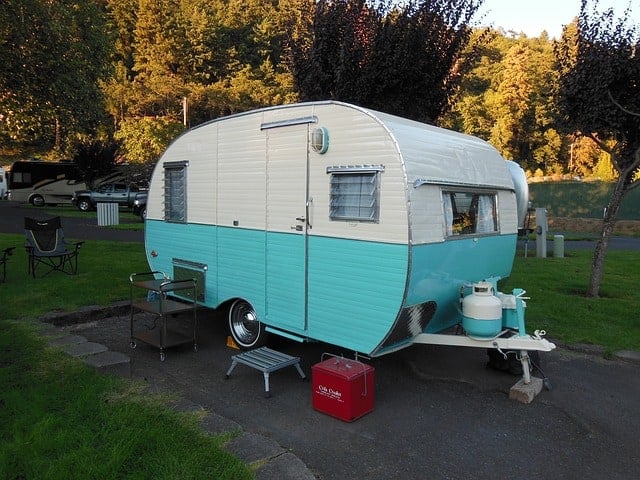
Vans Compared to Tents and Traditional RVs
Camping for the last half century or so has been dominated by two methods: tents and recreational vehicles. Both are a feasible way to explore the great outdoors, but they have serious downfalls.
TENT CAMPING VS CAMPER VAN
Let’s start off by comparing vans to tent camping. I love tent camping; there’s nothing like strapping a tent on your back and hiking deep into wilderness areas.
But it’s not an easy lifestyle. You have to find a flat area free of large rocks, tree roots, and anything else you don’t want to sleep on top of. Meanwhile, vans can park on top of these things and still give you a comfortable mattress without a fuss. Even leveling-off a van is a quick task completed with a small shovel and/or a few leveling blocks.
Then you have to spend the time to set up the tent, your mattress, sleeping bags, and whatever else you want inside of your tent. In a camper van, your bed is either always ready to go or can be within minutes. Save your precious time for adventures, not for setting up camp.
One of the biggest problems with tent camping is that you’re at the whim of Mother Nature. One nasty storm can quickly turn a night in a tent into a hellish situation. To have shade, you’ll schlep along a separate structure, chairs, tables, etc.
In a van, you can easily escape poor weather and head into the comfort of a hard-sided vehicle. Most have seating areas in addition to sleeping quarters. Sure, bring along a few chairs and a small table to enjoy the outdoor world, but don’t feel forced to set everything up when you don’t want to or when time is tight.
Running water is hard to come by while tent camping. It makes washing dishes, your hands, or anything else more difficult than desired. Camper vans almost always have running water with as large of a reservoir as you desire, all ready to go at the twist of a faucet.
Finally, you’ll always be wondering what is lurking outside of the tent. With nothing more than a thin sheet of polyester between you and the outside world, every crack of a twig might have you wondering if a bear is going to pummel through into your sleeping area. Vans provide a layer of protection and security that will allow you to sleep like a baby, even deep in grizzly country.
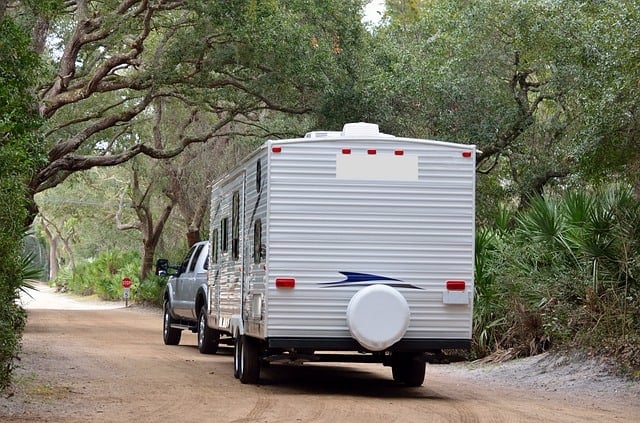
TRADITIONAL RECREATIONAL VEHICLES: CAMPER VAN VS. RV
I hear what you’re saying: But traditional RVs solve those same problems! And I wholeheartedly agree. They provide ready-to-go sleeping areas, adequate shelter, and affords many luxuries we usually reserve for home.
But traditional RVs have a wide variety of challenges that simply don’t exist with camper vans.
First and foremost is the size of traditional RVs and their ease of use (or lack thereof). There’s no denying that a 40’ long Class A RV is a pain to drive around and park. But even the tiniest 15’ tow-behind unit hits well over 30’ when on the road. The only parking spots you fit into are the ones in the back of big box retailers. Resupplying in a tight downtown area is a no-go. Even comparing camper vans to other Class B RVs, they are usually much more narrow and maneuverable.
And I can’t tell you how many firsthand accounts I’ve heard of people who simply can’t go on adventures alone with their tow-behind camper. It’s too challenging for them to hook up the unit to the hitch by themselves. Or too difficult to park in tight campground spots without help. I even know of people who fret parking their camper will lead to divorce! No kidding!
Camper vans run from about 19’ in the shorter models and around 25’ in the longest models. And that’s the total length! You can park in nearly any parking space that a regular passenger vehicle can fit into. And even if you go for the longer models, they’re still shorter than nearly every RV on the market.
Vans do not have to worry about hooking up to a hitch nor adhering to towing restrictions that exist on many highways (now is probably a good time to mention that you CAN tow things with camper vans; so you can bring your camper plus toys in one vehicle). Vans are a breeze to drive in narrow roads and tight areas. Reversing is as easy as backing up your daily driver.

If the size doesn’t convince you, let’s discuss storage and maintenance.
RVs are often stored away from home, whether it’s due to HOA rules or a desire to avoid having a big, ugly RV parked outside of your home.
This results in two things: (1) a never-ending drain on your wallet in monthly storage fees and (2) a lot of time from your life to retrieve and replace your RV for every single use. For every maintenance job. For every pack and unpack.
On the other hand, vans can be aesthetically pleasing and no different than parking a vehicle. They usually skirt around the HOA restrictions and can be ready to go at the drop of a hat. On top of that, maintenance jobs can be tackled at any moment you can squeeze them in. Preparing for a trip can be done over days, not hours. Get that fridge nice and cold before you throw your food in. Have a moment to put sheets on, run the vacuum through it, or do whatever you need before hitting the road. At your own pace.
And if you are steering away from camper vans due to their price of purchase, just remember that you’re purchasing an asset that holds value. Paying monthly storage fees does nothing more than empty your bank account with no chance of recouping.
On top of that, your camper van can also be used as a secondary vehicle that’s always there and ready to go! One with plenty of storage space for those monster Costco or Home Depot runs. Many people with camper vans choose to share one main daily driver and use the van as needed as their secondary vehicle. Talk about cost savings!
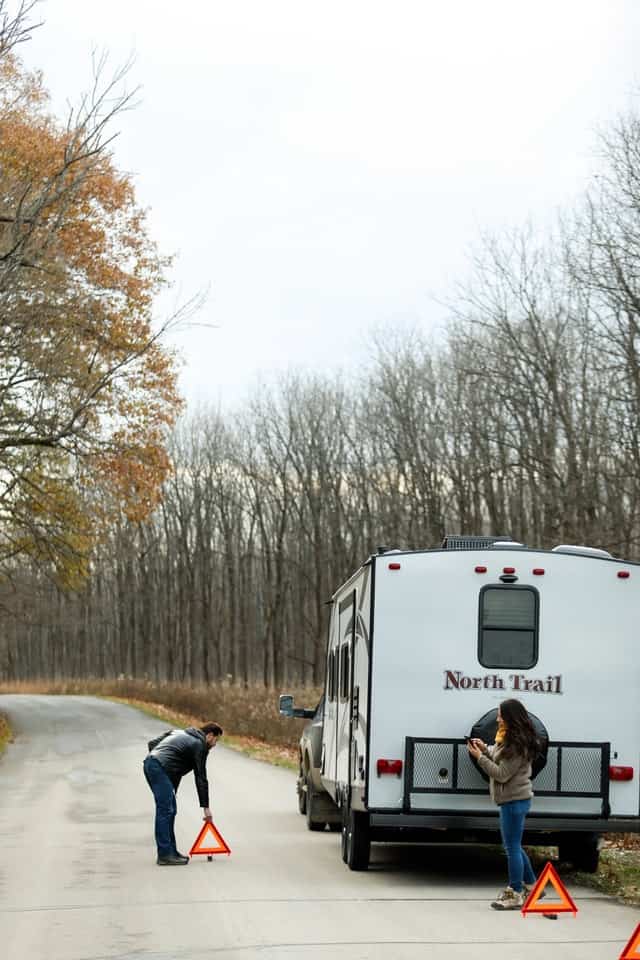
Another major difference between traditional RVs and camper vans are the construction methods and materials.
The fragile fiberglass bodies used on many traditional RVs are no match for the exterior metals of modern camper vans. The interior construction methods of traditional RVs often utilize lightweight, cheap materials that were mostly phased out in the 1980’s (such as laminate-covered composites). While you can still find these in some van builds, the best outfitters use real woods and sophisticated designs to create a new combination of strength, durability, and weight-savings.
Finally, there’s nothing worse than gas-guzzling vehicles. As outdoor enthusiasts, we share a special responsibility to care for the earth.
Did you know that some camper vans can get over 20 miles per gallon? In fact, mine is getting over 25 miles per gallon on our current excursion! Compare that to your truck or SUV towing anything, or even worse, to any Class A or Class C rig. Until electric charging stations and vehicles get up to speed with camping’s world (getting closer every day!), there’s simply no beating a camper van’s fuel efficiency.
You know what all of this leads to? You actually USING your camper! It’ll be easier to drive, save you from bottomless storage fees, made of better materials, and save you money every mile you cruise down the road.
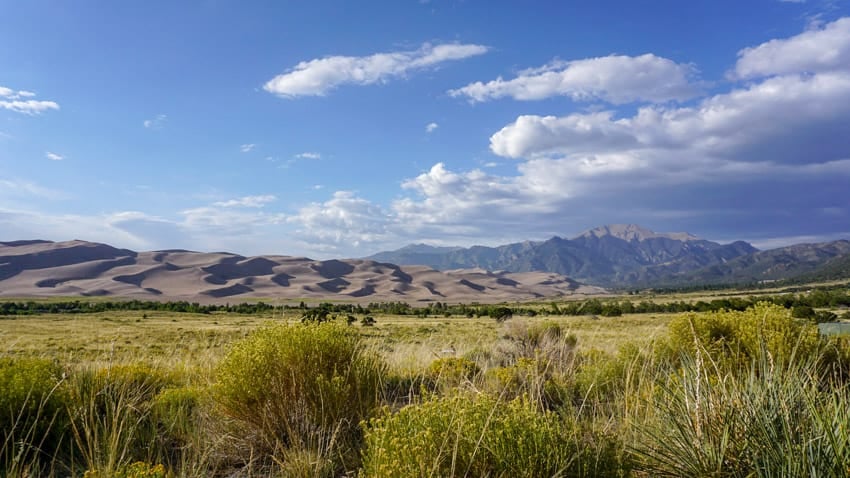
Tiny Living: Fit More Features Into Less Volume
Some people think that vans are too small. After all, they’ll never be able to hold all the amenities you can find in a Class A RV.
In a way, they aren’t wrong. From another perspective, that’s the whole point! Embrace the minimalism that comes with a tiny home, while recognizing that you can fully customize your van to incorporate whatever you desire.
Traditional RVs are like cookie-cutter homes of boring suburban towns. They try to satisfy the needs of everyone, and by doing so, they fail to fulfill the wildest dreams of anyone. They’re simply too basic and shoot to please too many people.
Camper vans are insanely customizable. In fact, even if you go with some of the biggest van builders on the market, they’ll still be highly tailored vehicles which prioritize certain aspects over others.
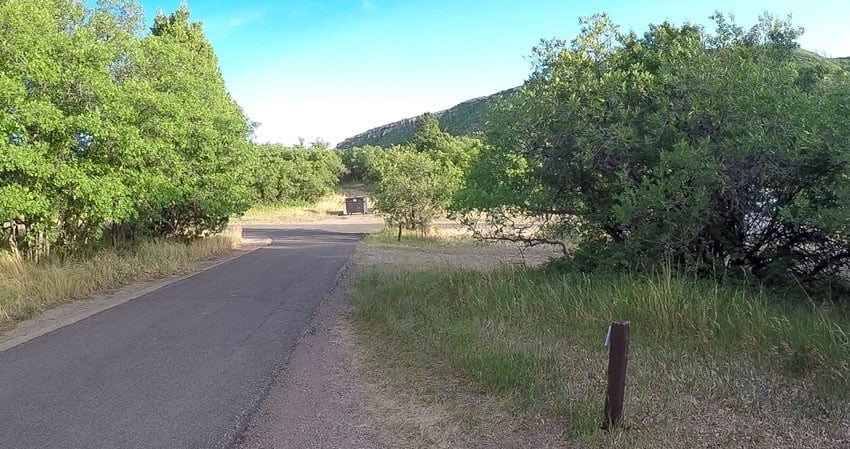
What does this mean for you? It means you get to have a vehicle that meets YOUR specific needs. One that highlights what you want and leaves out what you don’t!
Some designs allow for family usage, while others focus on the ideal 2-person setup. Whether it’s a big queen-size bed or a combination of Murphy beds and bunks, nearly any family unit can find the right sleeping arrangement.
Couches and big-screen televisions with satellite coverage can make for the ultimate roving football fan. Be ready for the ultimate tailgate like never before. Or throw in an oversized cooktop with 20,000 BTU burners (or induction) plus an oven, and conquer your gourmet chef dreams while parked on the beach or in the mountains.
The bathroom can consist of one tiny toilet or an entire en-suite shower, sink, and flushing toilet. Stereos can be comprised of a simple bluetooth speaker or full interior/exterior ear-rattling system.
Worried about fitting your toys? With the vast world of customizable front, rear, and roof-mounted racks available today, you can bring anything along! Electric bikes for two, multiple kayaks or SUPs, dual-sport motorcycles for the trail-lover, or even a 4-seater OHV towed behind. Space underneath beds can fit canopy structures, chairs, tables, grills, surf boards, skis, and anything else you need to get the most of your adventures.
The impossible is now possible. You can have everything in a tiny space. It’s just up to you to determine exactly what everything means.

Leverage Modern Technology
Technological growth is one thing which has allowed humans to evolve. Our agricultural knowledge changed us from hunter/gatherers to dwelling-focused. Waste systems rid us of the many consequences that can come from poor sanitation. Scientific breakthroughs have routinely catapulted our species through challenge after challenge.
And now, recent advances have allowed camper vans to contain everything you need in a ridiculously small package. Better yet, most are capable of being fully off-grid!
The most important breakthrough is the electrical systems; specifically solar and battery technology. Solar panels are common and affordable. When the appropriate size solar panels (which can almost always fit on your roof) are combined with the proper battery storage (thank you lithium), you can have all of the electrical power you need by doing nothing more than parking under the sun.
If you’re concerned about solar not being enough, I first beg you to do more research on the subject. No longer are the days when solar panels are inefficient and insufficient. As long as your electrical system is properly designed (including the use of energy efficient appliances), you can cover almost every need with solar alone.
However, there is always the option to install backup power generation methods. Hook it up to the vehicle’s alternator as a generator-like option. Or install a shore power plug so you can pump that A/C when at campgrounds with hookups. Old-school generators are rapidly becoming a thing of the past (and many people are happy to see them and their noise/pollution go).
Running water systems for kitchen sinks are the norm and can include hot water (electric, gas, or combination). Water storage and propane tanks can be mounted underneath the vehicle or set inside for less hassle. Many people opt for a simple outdoor shower setup, but interior shower stalls aren’t entirely uncommon either.
Do you get serious anxiety about being completely off-grid and want to have backup options? No worries. Traditional electric, water, and sewage RV hookups are still an option for vans.
Fridge/freezer setups can be as large or small as you want, with anything ranging from a basic cooler to giant home-like spaces. The current efficiency of most fridge/freezers leaves propane-fueled systems in the past in favor of electrical connections.
If you’re looking to explore in frigid temperatures, check out the compact heaters that can be powered from the van’s fuel tank. Propane or electrical based heaters are options too. Air conditioners are very demanding of electrical systems, but many vans include AC units and in combination with a shore power plug, constant use is a possibility.
Nearly every camper van has some type of toilet, and you can choose which one fits your needs best. Cassette toilets are a cheap, simple way to have something around; some vans use a flushing toilet and black tank; but the modern technology of composting toilets is really coming into popularity. They can be used full-time for weeks, without smelling, and most people say they’re easier to clean up than cassette or black tanks.
Still don’t think that you can fit everything you need into a van? Leave a comment below to share your concerns and I’ll see if I can tackle them!
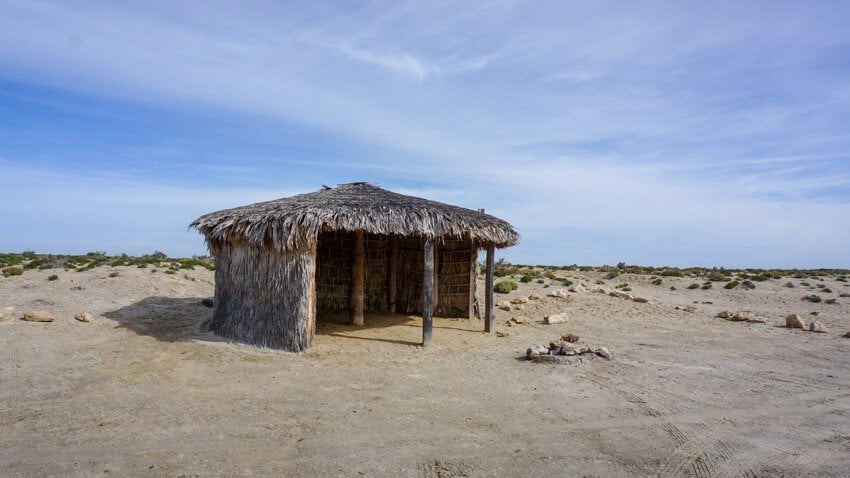
Skip the Campgrounds
While camping and outdoor adventure have been exploding in popularity for some time, the pandemic caused the demand for campsites to skyrocket toward the stratosphere. Add into the mix the baby boomers heading into retirement and adventure, and you have essentially limitless demand for camping.
From my point of view, that’s a great thing! Travel opens minds and expands horizons. However, there is a major issue when it comes to finding camping reservations.
Many campgrounds in the United States allow reservations up to six months in advance. Some people are now planning that far ahead regularly and snag up the best spots instantaneously. You might find that it is nearly impossible to locate vacancies without matching their foresight. Especially over holiday periods or popular areas.
That’s a big bummer for those of us who like to live spontaneously.
But here’s the thing: If you are in the right camping vehicle, you are in no way limited to campgrounds and hookups! And since camper vans can be made to easily go off-grid without sacrifice, they are the perfect vehicles for doing so.
If you know what to look for and have the right camper van, you can find incredible camping destinations that do not require reservations and can almost always host another camper or two. Often for free!
See our post on how to find the best campsites for more information.
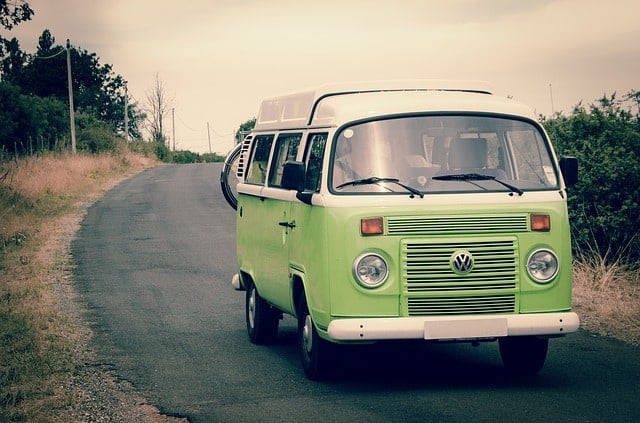
Why Camper Vans Are So Popular
So why does everyone suddenly want a camper van? Are you convinced of their ultimate combination yet?
Conquer the pitfalls of tent camping by getting off the ground and into a weatherproof vehicle. Forget RV driving/hitching headaches and keep the storage fees in your own wallet by choosing a vehicle you can easily drive and park anywhere you go.
Look beyond the cookie-cutter reality of traditional RVs. Decide what’s important to you and customize your van to have everything you need and nothing you don’t.
Use the latest and greatest in technology to squeeze everything into an amazingly small but incredibly capable off-grid home. One that allows you to skip the overcrowded campgrounds.
All in all, camper vans are here to stay. They will continue to grow in popularity as their designs and technology evolve over time. People will embrace the minimalist mentality and will use their adventure-focused vehicles to conquer to world around them.
What is your favorite part of camper vans? Leave a comment below to share!


I love this post. The thing I like in your posts is that everything is in a detailed and learning manner.
Thanks for the comment! Camper vans have come a long way recently and opened up a new world of possibilities, especially if built to meet the owners’ specific desires. We get a lot of use out of ours.